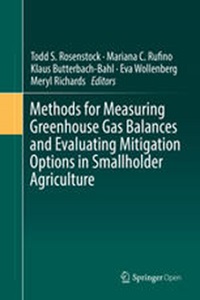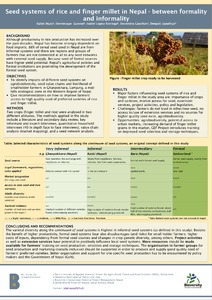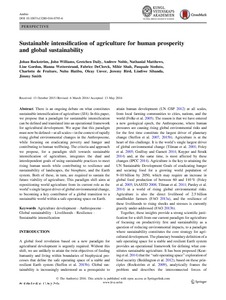Scaling point and plot measurements of greenhouse gas fluxes, balances, and intensities to whole farms and landscapes
Measurements of nutrient stocks and greenhouse gas (GHG) fluxes are typically collected at very local scales (<1 to 30 m2) and then extrapolated to estimate impacts at larger spatial extents (farms, landscapes, or even countries). Translating point measurements to higher levels of aggregation is called scaling. Scaling fundamentally involves conversion of data through integration or interpolation and/or simplifying or nesting models. Model and data manipulation techniques to scale estimates are referred to as scaling methods.









